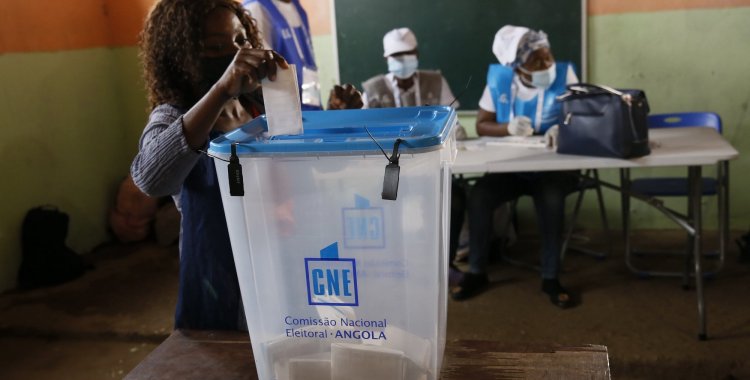For Inglês Pinto, the "vice" of the national tabulation minutes of the August 24 elections, which does not specify the votes won by the national commissioners, "should not be perceived as illegality or a gross violation of the law".
"The act is not illegal, now the formalism has to be fulfilled, this has to be expressed in the explanation of vote and it was evidently decided by a majority, now I do not say that there was a gross violation of legality", said this Tuesday the jurist in an interview with Lusa.
"It is the problem of non-compliance with the law that leads to a climate of suspicion and we have to be very careful with the formal legal rigor, because in this environment, as it is, if there are flaws in any formal legal aspect, people raise situations of suspicion and jurists must be aware of this", he noted.
In the opinion of the well-known jurist, former chairman of the Bar Association, "there are reasons for complaints", especially "for non-compliance with formal legal requirements" in the minutes.
"Now, whoever is going to do the analysis is able to verify if this fact is sufficiently suitable, to question the project as a whole or just a repair of the critical analysis of the performance of the body [CNE]", he observed.
The president of the CNE, Manuel Pereira da Silva, released on Monday the final tabulation minutes of the August 24 general elections, which proclaimed the MPLA and its candidate, João Lourenço, as winners with 51.17 percent of the votes. , followed by UNITA with 43.95 percent.
At the plenary meeting, which approved the final minutes, only 13 of the 17 members of the plenary were present, with only 11 signing the minutes and two commissioners voting against, namely Rafael Daniel Aguiar and Adriana Chitula Séssipo.
The minutes, however, do not present the explanations of vote of the respective commissioners.
For "duly justified" reasons, the CNE president explained, "the following members were absent (from the plenary meeting): Isaías Celestino Chitombi, Maria Marcelina Lucanda Pascoal, Domingos Inácio Francisco and, unjustifiably, Jorge Manuel Mussonguela", all nominated by the opposition.
In view of the absence of some commissioners and non-ratification of the minutes by others, Inglês Pinto understands that the minutes were approved by a majority.
"Actually, it must be by consensus and when there is no consensus, it is decided by majority. Whoever has an out-voted vote can, and must, make an explanation of vote and it must be included in the minutes, just like a judgment of the courts, that is the basic principle ", he stressed.
The minutes "passed, yes, by an absolute majority, but this has to be included and the votes lost have to be confirmed. This is the mechanism that works, now if someone appeals against this decision, then the judge will check if this was enough to call into cause the minutes or whether the defect can be cured immediately or else they must publicly admit the lapse".
The former chairman of the Bar Association also mentioned that formal legal mechanisms "cannot be set aside in this case, especially in a tense climate", considering, however, that this "addiction does not call into question the number of votes".
"For all the more reason, when we are in a tense climate, we have to be rigorous in these formalisms. This does not call into question the number of votes, it can only call into question if, by chance, whoever claims presents the summary minutes there and compares them with the definitive results", he stressed.
The presence or absence of the commissioners "does not interfere with the results", but there is a lack of compliance with legal and formal aspects, a "defect" that can be remedied by including this data in the minutes, he insisted.
"This formal legal aspect must be remedied, for the sake of electoral justice, these formalisms need to be very careful", concluded the jurist Inglês Pinto.
The plenary of the CNE, establishes the organic law on the organization and functioning of the body, "works with the absolute majority of its members in effectiveness of functions, whose deliberations are taken by consensus or, in the absence of this, by an absolute majority of the members present in the session".
Most of the members of the plenary of the electoral body were appointed by the MPLA, in power since 1975.
With the final results of the August 24 elections, the Popular Movement for the Liberation of Angola (MPLA), which obtained 51.17 percent of the votes, elected 124 deputies, the National Union for the Total Independence of Angola (UNITA), which totaled 43.95 percent, elected 90 deputies, almost twice as many as in 2017.
The Social Renewal Party (PRS) won two seats in parliament with 1.14 percent of voters' votes, the same number of deputies won the National Liberation Front of Angola (FNLA) and the Humanist Party of Angola (PHA) with 1.06 percent and 1.02 percent votes respectively.
The CASA-CE coalition, the APN and the P-Njango did not obtain seats in the National Assembly, which in the 2022-2017 legislature will have 220 deputies.







